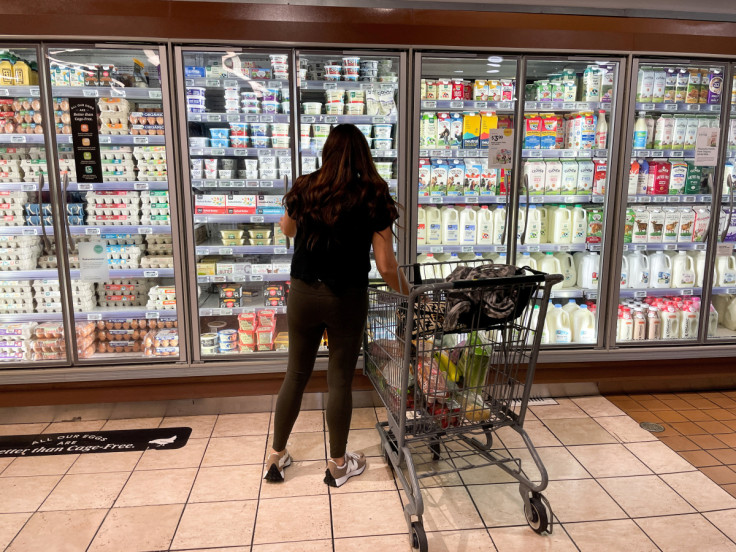Fed Says People Hate Inflation, Census Survey Suggests It Runs Deep

High inflation has made it harder to pay the bills, roiled retirement plans, and led people to curb travel and watch the thermostat.
Turns out it is also freaking them out in a broad and often intense way according to new U.S. Census household survey data that has begun including more questions on rising prices.
According to the latest version of the Census' Household Pulse survey about 65% of U.S. adults found rising prices either "very" or "moderately" stressful.
Stress over rising prices was slightly higher for Hispanic and Black adults. It was lower among those with a college degree, at about 54%, and perhaps not surprisingly varied sharply by income. More than 80% of those earning under $50,000 annually found current inflation stressful; it was less than 38% for those earning more than $200,000.
Graphic: Stressed by inflation Stressed by inflation -
The Census bureau began the Household Pulse survey early in the pandemic to try to monitor fast-changing health, social and economic trends in close to real time, with data collected and released with more frequency than its other population estimates. The questions have changed over time based on emerging trends like working from home.
In recent releases it has documented an increase in food insecurity as pandemic-era income support programs lapsed, with the most recent survey showing 11.5% of adults living in households where there was "sometimes or often" not enough food, up from a low of less than 8% in mid-2021 when pandemic income support programs were still in place.
Since inflation began spiking last year it showed the share of adults in households where it was "somewhat or very difficult" to meet usual expenses rising to 40% from around 26% in the middle of last year.
Graphic: Trouble paying bills -
The most recent survey, conducted from Sept. 14 to 26 and including responses from about 51,000 households, tried to drill in more deeply on how inflation was influencing the public's mood and behavior.
It's an issue of concern to the U.S. Federal Reserve as it tries to assess the financial resilience of households, and to elected officials competing in midterm elections.
With overall consumer prices rising more than 8% annually as of August, the Census survey showed it taking a toll on spending patterns as well as psychology.
About 35% of adults said they had canceled a trip in the previous week because of the cost of gas, while about 20% said they had cut or eliminated spending for "basic household necessities, such as medicine or food," in order to pay an energy bill.
© Copyright Thomson Reuters 2024. All rights reserved.




















